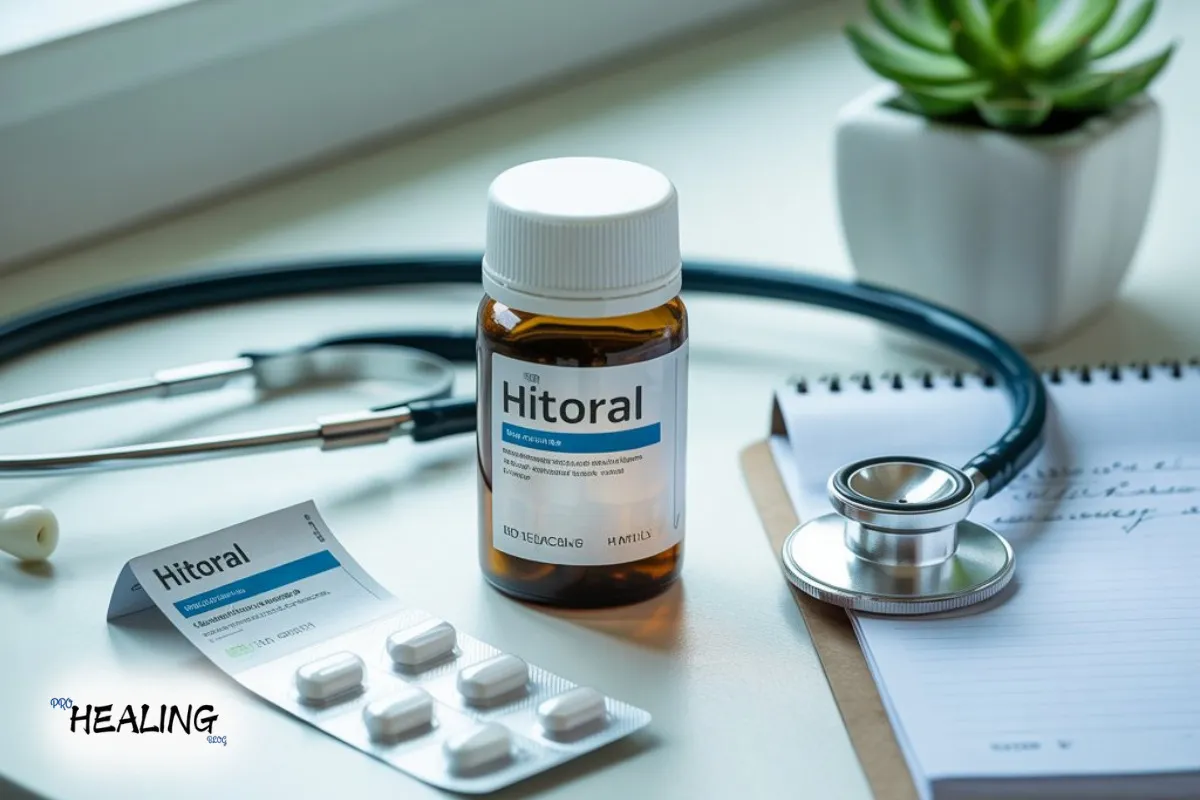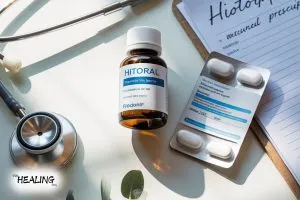Introduction
From traditional medicine to medical breakthroughs, medicine simply keeps evolving with medical breakthroughs such as Hitoral leading the way globally. Currently making waves as game–changing pharmaceutical technology, Hitoral holds out promise for greater therapeutic effectiveness, increased patient usability, and of crucial significance, reduced risk. All the while, therefore, scientists, practitioners, and patients anxiously track its evolution and clinical trial results in worldwide settings. This article officially discusses Hitoral’s history, mechanism of action, Hitoral medicine benefits, disadvantages, clinical application, and potential in the future of medicine.
1. Origins and Discovery of Hitoral
Researchers incidentally discovered Hitoral while screening new anti-inflammatory agents against autoimmune disease mechanisms within the laboratory. Preclinical research thus showed Hitoral to exhibit strong immunomodulatory action with few side effects in mammalian models. Structural optimization of the initial compound also enhanced its bioavailability and receptor specificity via heavy medicinal chemistry procedures. Then, scientists patented globally and obtained regulatory approvals for first-phase I clinical trials assessing safety profiles. Moreover, cooperation between drug companies and universities accelerated Hitoral development, as it came under strict testing under diverse conditions worldwide.
2. Mechanism of Action
Hitoral acts by selectively suppressing pro-inflammatory cytokine development in macrophages and thus effectively dampening chronic inflammation. It also binds to certain kinases used in autoimmune signal cascades and thus terminates disease progression at molecular levels. Thus, Hitoral has biphasic activity—preventing inflammation, in addition to halting tissue damage resulting from immune hyperactivity. Also, its enhanced half-life favors once-daily dosing with much improved patient compliance compared to traditional treatments. In summary, Hitoral’s action is directed against etiological causes of disease and not against normal cells as a collateral effect of therapy.
3. Clinical Trial Phases
Various phase I trials assessed safety and tolerability of Hitoral in healthy volunteers with mild transient headache found predominantly. Thereafter, phase II randomized controlled trials assessed efficacy in patients of rheumatoid arthritis on standardized clinical measures and biomarkers. Encouragingly, Hitoral revealed statistically significant joint swelling and inflammatory marker decrease at twelve weeks. Similarly, phase III multi-center trials compared Hitoral with conventional standard-of-care treatments in varied populations, revealing non-inferiority. Apart from that, long-term extension trials are also intended to measure the chronic disease patients’ ongoing efficacy, safety, and quality of life improvement globally.
4. Indications and Approved Uses
Hitoral was first approved for the treatment of adults with severe to moderate rheumatoid arthritis that had been unresponsive to other treatments. Moreover, European and Asian health authorities conditionally approved the use in treating psoriatic arthritis and ankylosing spondylitis from robust trial results. Therefore, healthcare clinicians progressively prescribe Hitoral as part of refractory inflammatory autoimmune disease beyond the reach of standard disease-modifying therapy. Furthermore, pediatric trials test Hitoral’s application in juvenile idiopathic arthritis patients subject to further safety testing. By default, Hitoral’s growing indications keep moving its track record as a multipurpose new drug method.
Albentel Uses, Side Effects, and Dosage Guide
5. Dosage and Administration
Doctors mostly recommend Hitoral first in a dosage of fifty milligrams orally once daily on an empty stomach for best absorption. Dose can be increased after four weeks as needed based on patient tolerance and clinical response. Of particular note, adjustment of dose is essential when used in patients with moderate liver impairment or diminished kidney function. Additionally, co administration with immunosuppressants must be monitored closely for synergistic toxicity and increased susceptibility to infection. Therefore, creation of treatment regimens considering each patient uniquely allows maximum benefit to the patient without compromising on the potential side effects of therapy.
6. Safety Profile and Adverse Effects
Overall, Hitoral also has a good safety profile in comparison to the traditional therapy using methotrexate and biologics in trials. Mild gastrointestinal pain, transient headache, and night insomnia at the beginning of treatment are common side effects. Transient increases in liver function tests and small hematologic abnormalities are followed by the need for regular laboratory tests. Sparsely, thrombosis or opportunistic infections were observed as serious adverse effects, highlighting the importance of clinician alertness. Thus, healthcare workers must educate patients widely and monitor them frequently on follow-up to avoid risks proactively in Hitoral therapy administration.
7. Drug Interactions
Hitoral is metabolized by cytochrome P450 isoenzymes, CYP3A4, and hence there is a risk of possible drug–drug interactions with enzyme strong inducers or inhibitors. Therefore, concurrent use with potent CYP3A4 inhibitors such as ketoconazole raises the plasma levels of Hitoral and adjustment of the dose can be made. The level of Hitoral and its efficacy can be lowered by administration with rifampin. In addition, Hitoral administration with live vaccines is also contraindicated as it can have immunosuppressive action and impaired response to vaccine. Thus, health professionals must examine full medication histories and collaborate to avoid potentially adverse interactions with Hitoral.
8. Cost, Access, and Insurance Cover
Likewise, Hitoral medicine benefits is that prices are competitive with other new biologic drugs in developed economies today. Patient support programs and insurance negotiations, however, are designed to enhance access and affordability globally. Furthermore, generic and biosimilar research and development can follow patent expiry to reduce prices incrementally. While in the meantime, public health policies to put Hitoral into reimbursement formularies for targeted uses for public healthcare in most nations. Therefore, clinicians must enable accessible affordability resources to be accessible for appropriate patients. They must ensure effective prior authorization process administration at Hitoral initiation.
9. Patient Selection and Monitoring
Proper patient selection for Hitoral treatment involves careful consideration of the severity of disease, history of previous treatment, and comorbid conditions. Patients with a risk of having an active infection or history of hypersensitivity to Hitoral components should be excluded from treatment. Similarly, patients planning pregnancy or breastfeeding must be screened for risks and discussed because there is not enough reproductive safety data. Closely monitoring complete blood count, liver function tests, and renal function on a regular basis throughout treatment continues to be a requirement. Also, doctors must assess clinical response through standardized scoring systems and modify therapy to ensure maximum benefit.
10. Future Directions and Research
Current studies explore Hitoral medicine benefits in other autoimmune illnesses like inflammatory bowel disease and systemic lupus erythematosus. Initial findings are promising in the modulation of gastrointestinal inflammation with enhanced mucosal healing recorded. Additionally, combination studies assess Hitoral with biologics or targeted small molecules for greater response rates. In addition, scientists assess new formulations of Hitoral, e.g., extended-release capsules or injectable formulations, for varied delivery. Finally, precision medicine strategies with patient biomarkers could potentially optimize Hitoral therapy in optimizing individualized clinical profiles effectively.
Conclusion
In sum, Hitoral is a new idea with medicine benefits wide–ranging implications for autoimmune disease management and quality of life for patients worldwide. Its novel mechanism of action, oral bioavailability, and encouraging safety profile establish it as a strong candidate as an improved substitute for traditional treatments. Physicians, for their part, need to thoroughly screen candidates, monitor extensively, and encourage interaction to optimize outcomes responsibly. Further down the pipeline, larger patient populations with disease and individualized medicine environments are being investigated in ongoing studies that further expand Hitoral’s therapeutic applicability. Hitoral is, therefore, an important milestone towards improved chronic disease care. It improved patient well-being worldwide for patients with severely debilitating immune diseases







